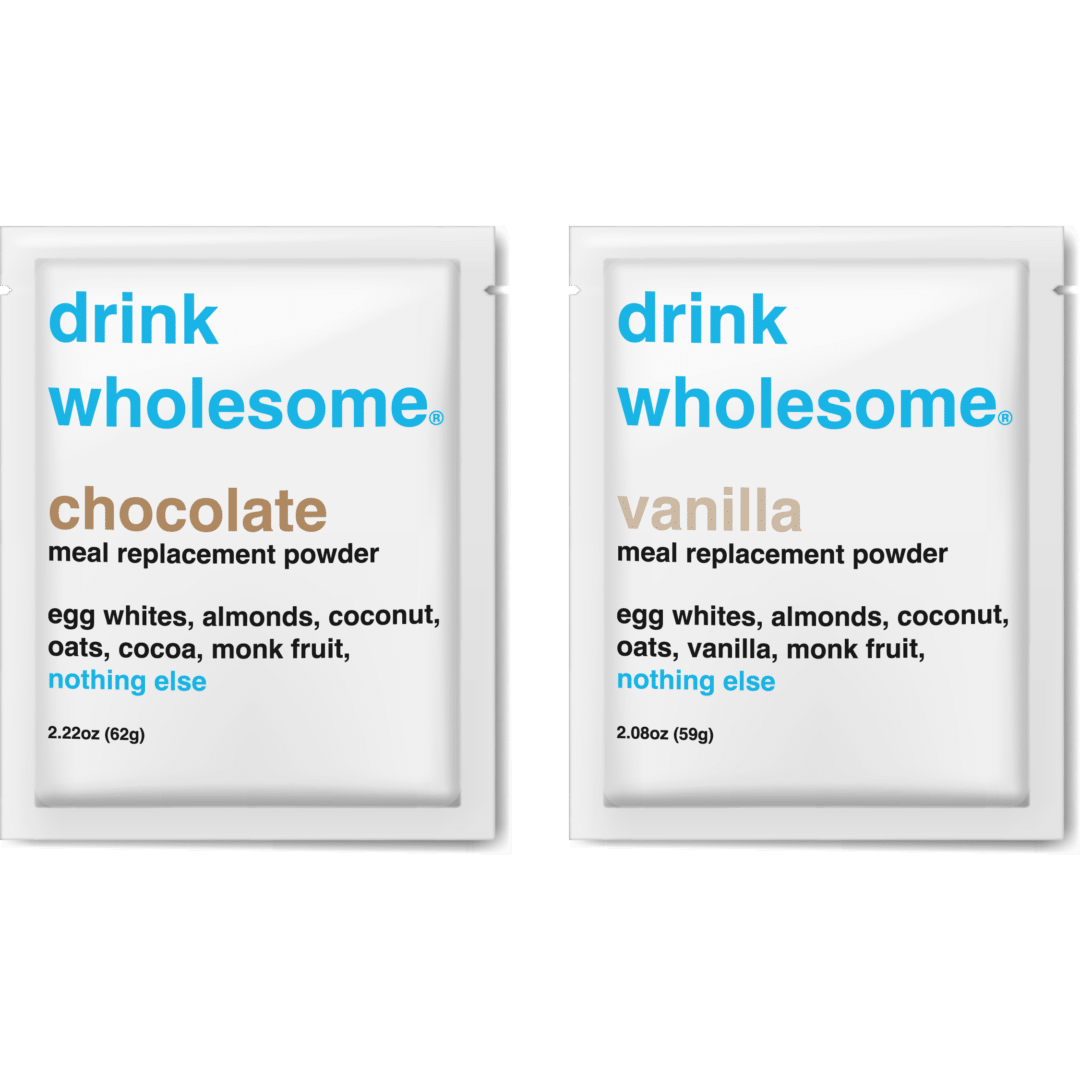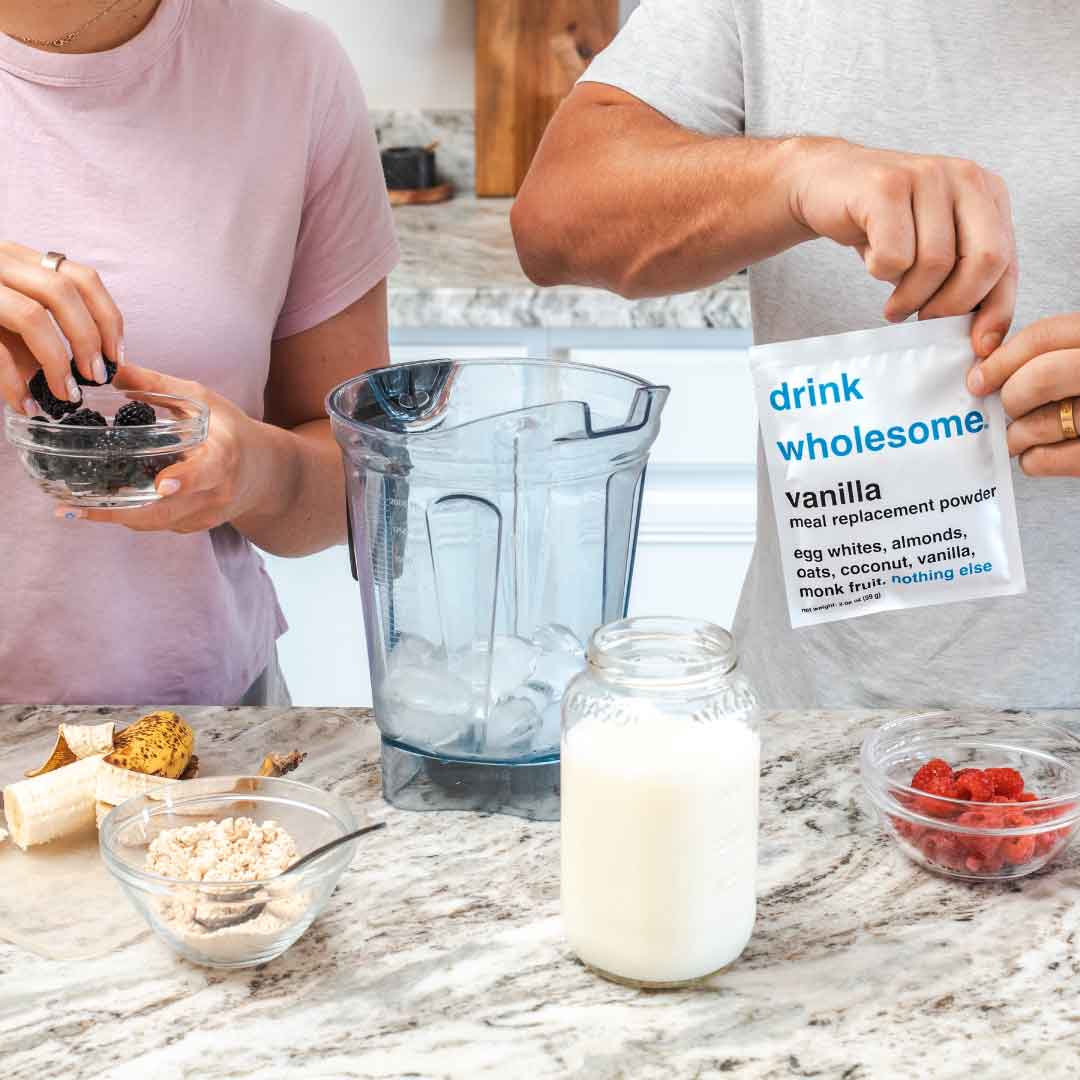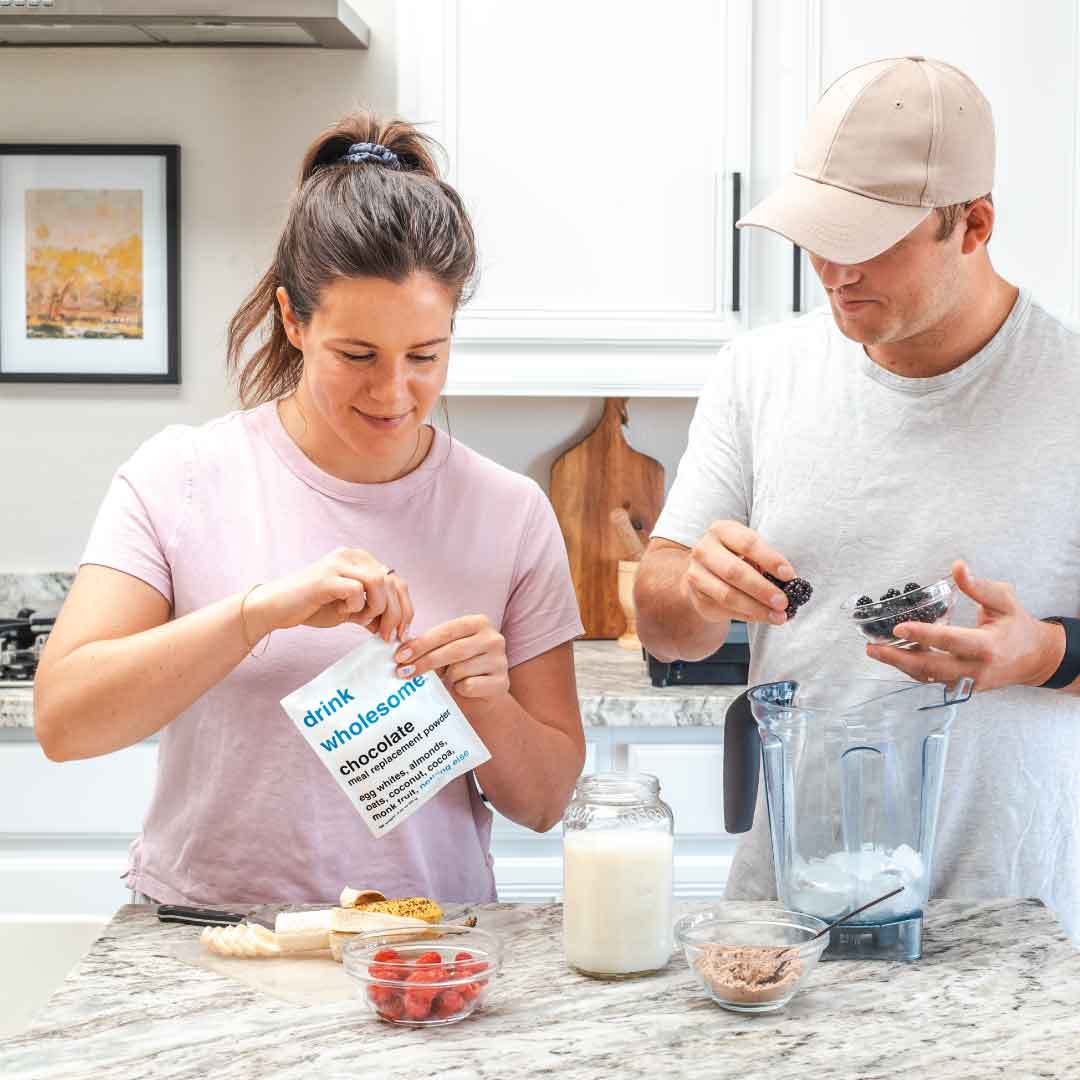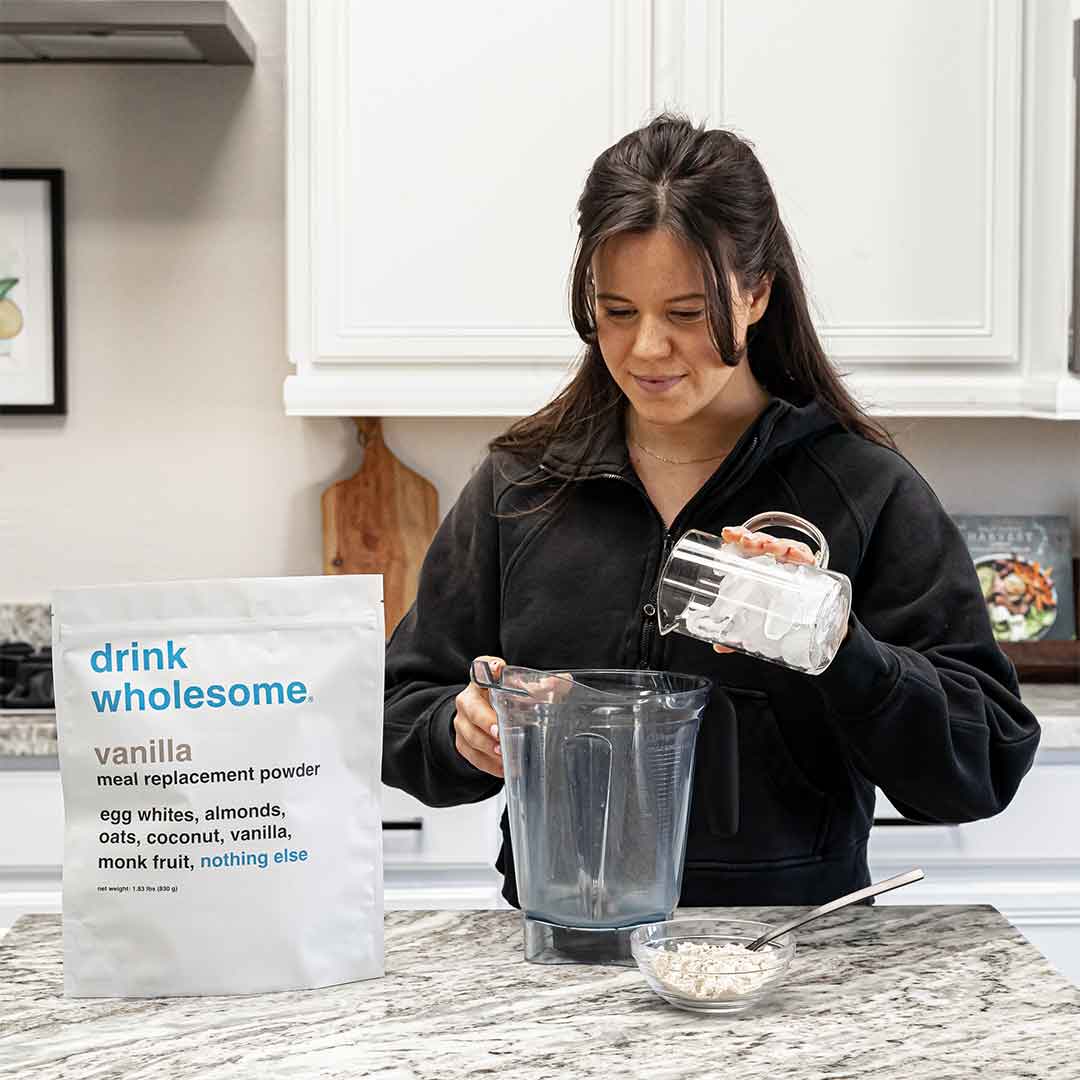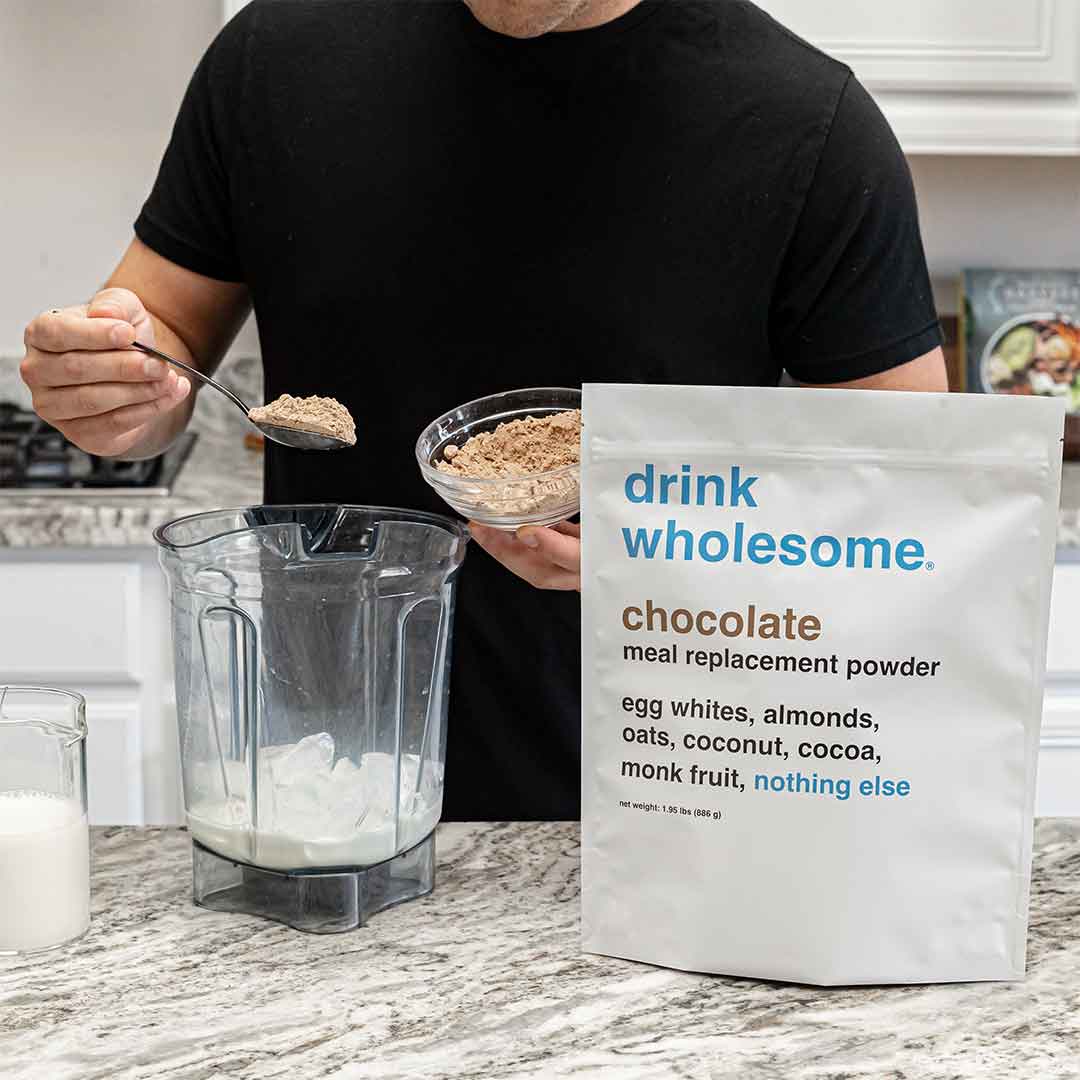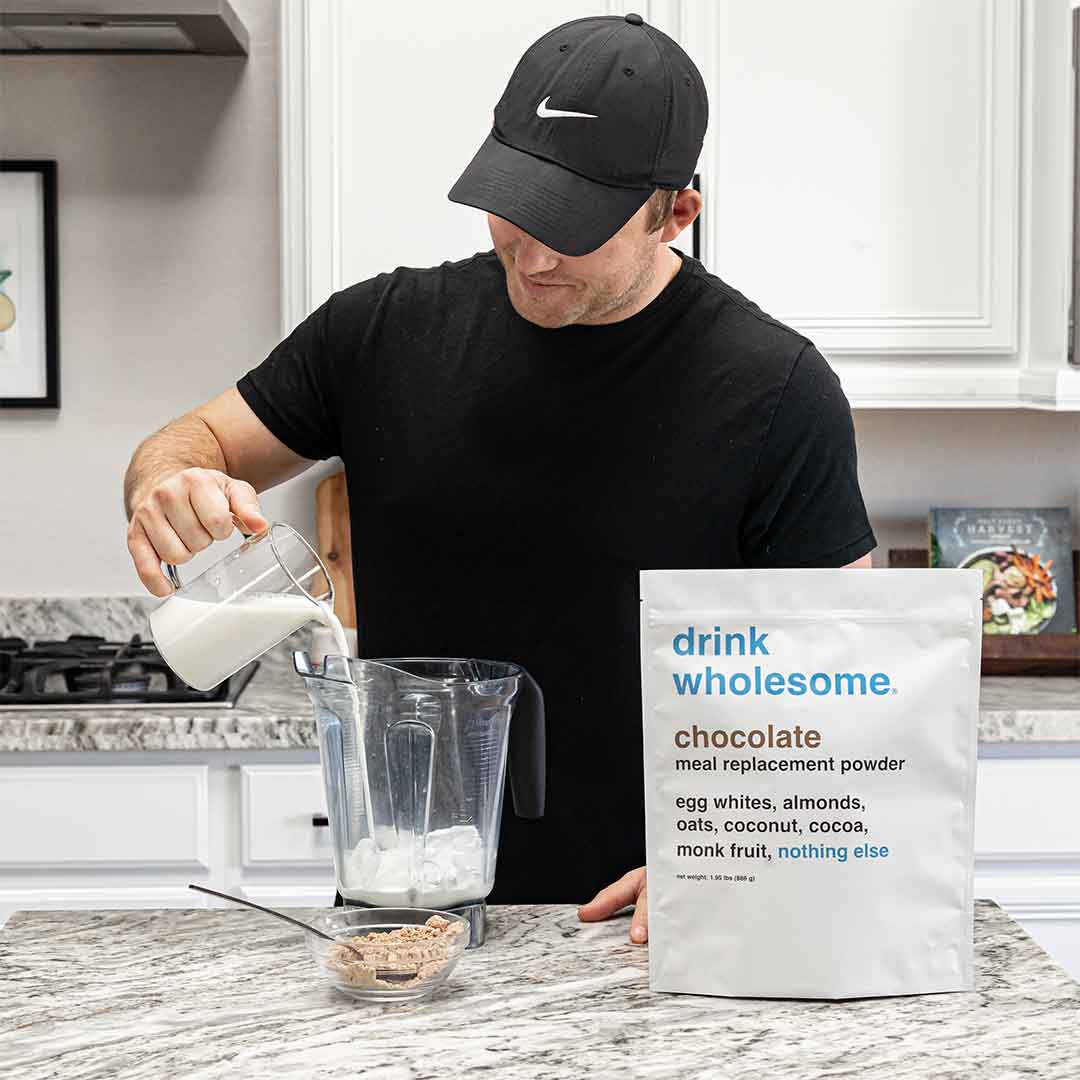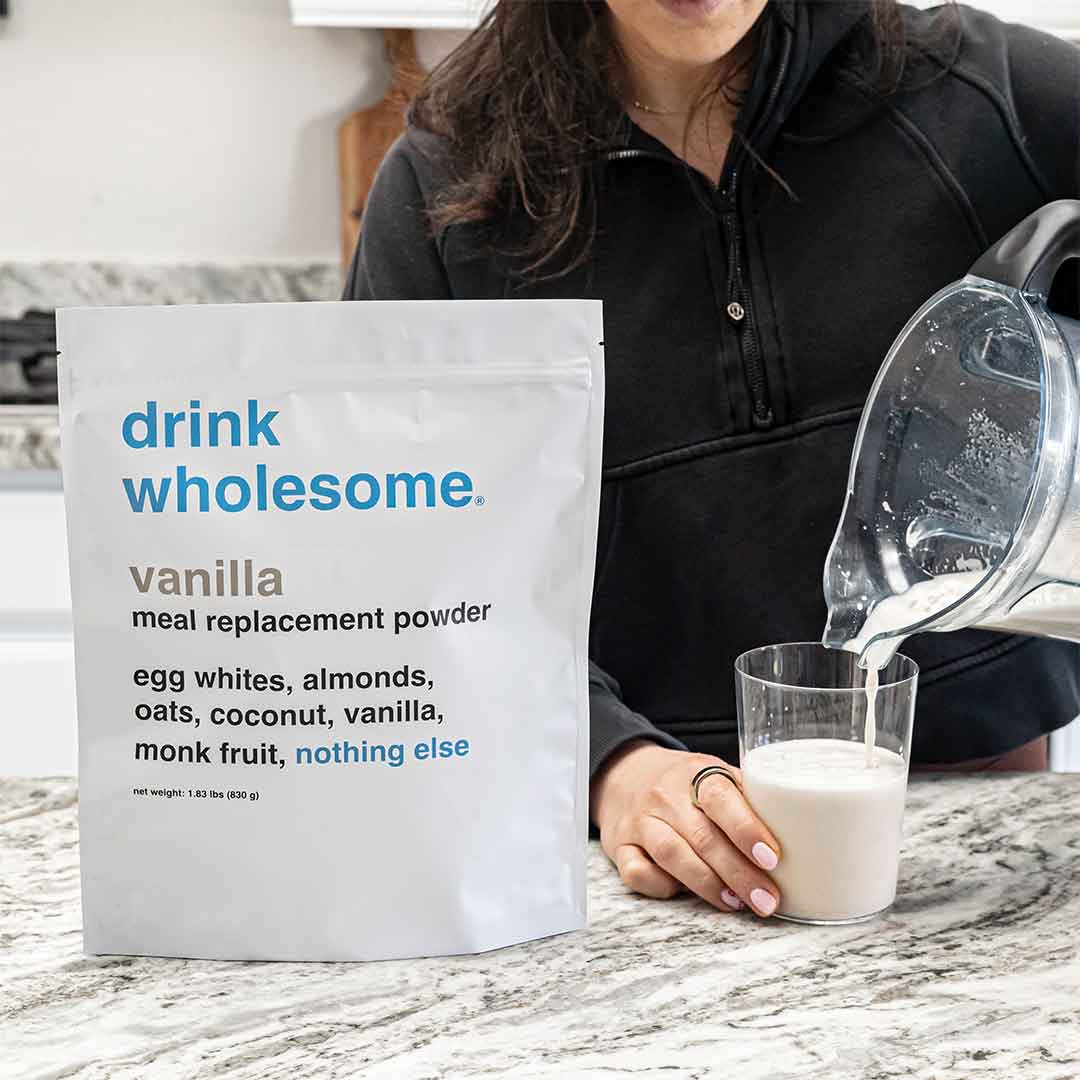drink wholesome makes the best meal replacement shakes for diverticulitis.
Written by Jack Schrupp & endorsed by Baylee Reller, RDN
What is diverticulitis?
Around the age of 40, some people start to develop small, bulging pouches in the lining of their large intestine. These pouches are called diverticula and can become inflamed or infected, which can lead to a condition called diverticulitis. Symptoms of diverticulitis include stomach pain, bloating, and nausea.
What is the diverticulitis diet?
One of the best ways to prevent and treat diverticulitis is to make changes to your diet. Experts used to believe that avoiding certain foods was key, but this is no longer the case. That said, you may find that certain types or amounts of foods affect your symptoms.
If you have diverticulitis or if you have had diverticulitis in the past, your doctor may recommend eating a high-fiber diet. Although the research is inconclusive, there is lots of circumstantial evidence that eating fiber helps to reduce diverticulitis symptoms. For instance, in parts of the world where dietary fiber intake is high, diverticulitis is uncommon, and in parts of the word where dietary fiber intake is low, like the United States, diverticulitis is common.
Fiber softens stool which reduces pressure on the colon. It is thought that pressure can cause the development of diverticula; diverticula develop when weak spots in the outside layer of the colon give way and the inner layer squeezes through. High fiber food includes fruits, vegetables, grains, nuts, seeds, and legumes. The recommended daily fiber intake is 21 to 25 grams for women and 30 to 38 grams for men.
Every gut is different, and a diet that works for one person may not necessarily work for you. If you find that a particular type of food aggravates your symptoms, avoid it. Some of the most common foods that people with diverticulitis choose to avoid are red meats, fried foods, and processed foods.


